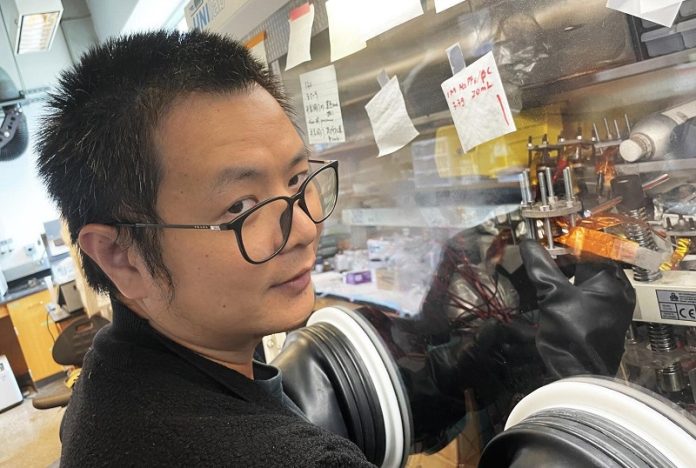
A team of researchers led by Georgia Tech’s Hailong Chen has developed a groundbreaking new material for lithium-ion batteries that could drastically reduce costs and transform the electric vehicle (EV) market and large-scale energy storage systems.
The new material, iron chloride (FeCl3), is much cheaper than current cathode materials yet performs just as well, making it a game-changer in the world of battery technology.
“For years, we’ve been searching for a low-cost, sustainable alternative to the expensive cathode materials used in batteries.
I believe we’ve found it,” said Chen, an associate professor at Georgia Tech’s School of Mechanical Engineering and the School of Materials Science and Engineering.
The new cathode material costs only 1% to 2% of what traditional cathode materials cost but still stores the same amount of energy.
This could significantly lower the cost of lithium-ion batteries, which currently account for about half the cost of an electric vehicle.
Chen’s team believes their invention could make EVs much more affordable, potentially even cheaper than traditional gas-powered cars.
Lithium-ion batteries (LIBs) have been around since the early 1990s, powering everything from smartphones to electric cars.
However, they are expensive to produce due to the costly metals like cobalt and nickel used in their cathodes.
Chen’s new material offers a cheaper and more sustainable alternative by using iron and chlorine—common, inexpensive elements found in everyday materials like steel and table salt.
One of the most exciting aspects of this new material is its potential to be used in all-solid-state lithium-ion batteries.
Unlike conventional batteries that use liquid electrolytes, all-solid-state batteries use solid electrolytes, which are safer, more efficient, and capable of holding more energy. These batteries are still in the development phase, but Chen’s new cathode material could make them much more practical and affordable.
In initial tests, FeCl3 performed as well as or even better than more expensive cathode materials. It has a higher operational voltage than lithium iron phosphate (LiFePO4), a commonly used cathode material in EVs, meaning it can provide more power to devices.
Chen’s interest in FeCl3 began with his research into solid electrolyte materials. After encountering issues with traditional cathodes, his team decided to try a chloride-based cathode, and the results were promising.
“This new material could make electric vehicles much cheaper and also improve large-scale energy storage, which is crucial for a stable and resilient electrical grid,” Chen said. “It could also enhance the sustainability and stability of the EV supply chain.”
The technology could be commercially viable within the next five years. For now, Chen’s team continues to refine the material and explore its potential. The work was a collaborative effort with researchers from Georgia Tech, Oak Ridge National Laboratory, and the University of Houston.
“We want to perfect the material in the lab and understand how it works at a deeper level,” Chen said. “But we’re also eager to scale up this technology and push it toward commercial use.”
Source: Georgia Institute of Technology.



